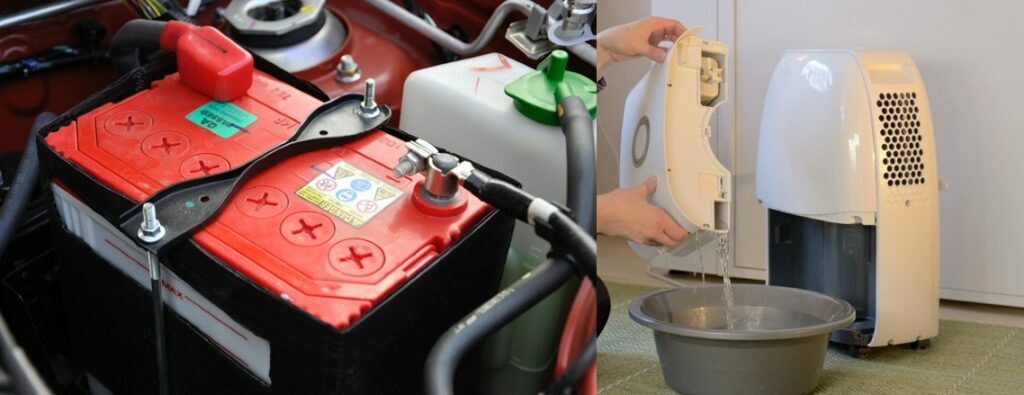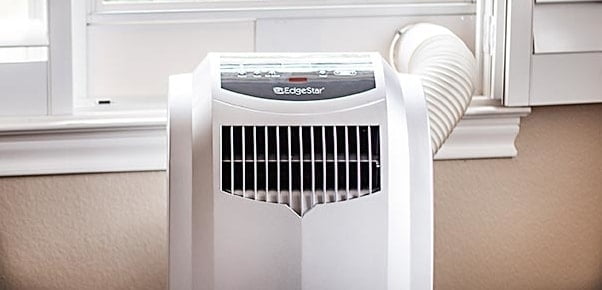Last Updated on January 1, 2024
Household insects and pests can affect your home, its accessories and more importantly its sterility to damage your own wellbeing. High moisture environment is very crucial for them to sustain and breed. One of the most effective ways to reduce humidity is using a dehumidifier. But will it be effective against bugs and pest?
Using a Dehumidifier can eliminate cockroaches, silverfish, earwigs, centipedes, bugs and other common pest insects by reducing relative humidity in your home. The reason is most of them need moisture from environment for their survival.
Before an extensive explanation covering all the aspects of this question, I want to clear a confusion you may face.
An insect is an animal that has exoskeleton, six legs and wings. Bug is actually a subcategory of insects. To keep it simple, in this article I will use insects and bugs interchangeably for common household pests.
Why You Need to Get Rid of Insects?
Not all insects are harmful. In fact, some of them are actually useful in your home as they consume other organisms that are undesirable.
For example, lady bugs are predators of many pests. Similarly, centipedes have other pests as their food source including moths, flies, silverfish and termites.
Even if they have some kind of negative effects, you can successfully eliminate them by eliminating their prey directly.
The purpose of this article though is getting rid of insects that are destructive and unhealthy for you. These insects are in the category of pests.
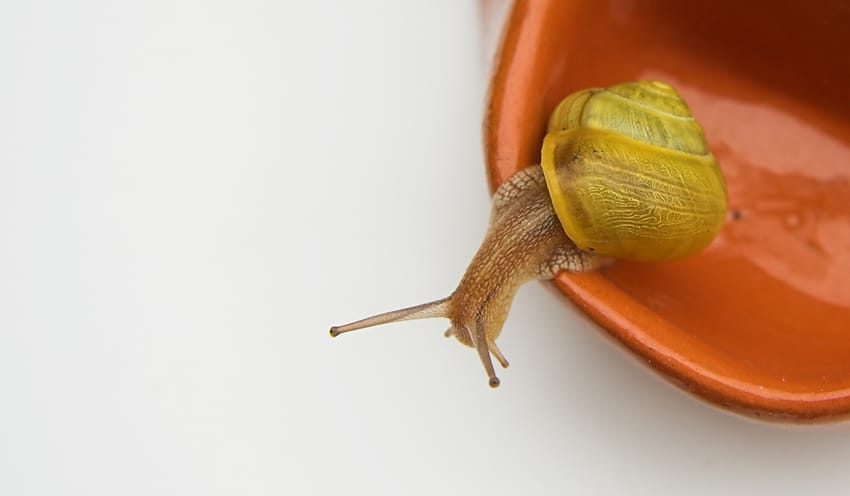
Cockroaches, silverfish, earwigs, mosquitoes all are pests among insects that are bad for you and your living space.
But what harm do they specifically do?
- For starters, they carry different diseases. Mosquitoes can carry West Nile virus and Zika virus.
- They can carry allergens to your home. Their feces can also cause allergic reactions.
- Skin that these pests shed can pollute your indoor air, for example dust mites.
- They can damage construction of your home and its accessories. Termites feed on unprotected wood, furniture, floor and ceiling of your home internally and destroy it.
Termite damage costs US homeowners around five billion dollars each year and affect 600,000 American homes
BREDA Pest Management
How Are Insects and Moisture Related?
Ever wondered why population of bugs become so high in summer and low in winter.
This is due to the fact that not all but many pest insects like to live in high temperature and moisture conditions.
Bugs not only like moisture but actually they intake water content from the atmosphere. It is crucial for them to survive.
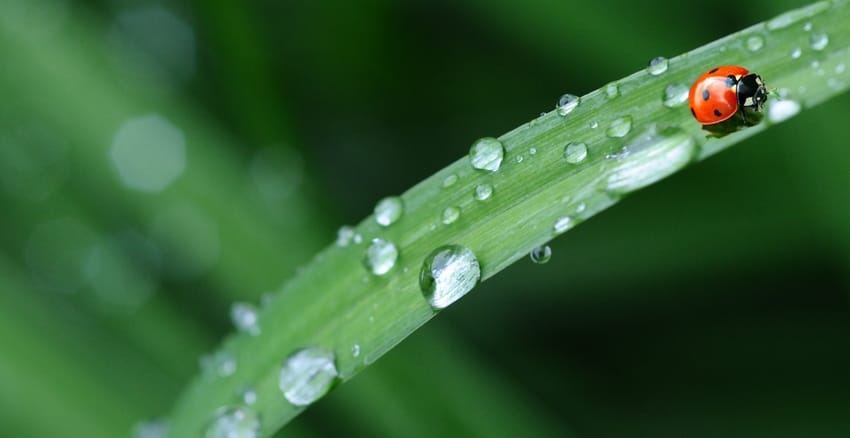
That is why in summer when it is hot and humid you will see them a lot. Especially in relatively wet and humid locations of your home. Wet soil around your house, water leakage or stagnant for long times will also attract them towards the area.
Remember, it is not necessary that these bugs thrive in your home only in summer season, they can also do so even in the driest season.
The reason is some of them appear in the fall season and do not depend much on humidity.
Secondly, it is possible that you have high humidity in a particular area of your home such as basement for reasons other than seasonality. There is more about this later in the article.
Will Dehumidifier Get Rid of Insects?
Running dehumidifier will repel insects and pests, that can damage your home and affect your wellbeing, and make them unable to sustain, by reduce relative humidity in your living area to recommended levels. The reason is for most of them high humidity is crucial for survival and growth.
Lower humidity levels will either force them to move out of your home or they will not be able to last without moisture. Some of the most common among them are cockroach, centipedes, silverfish, termites etc.
Remember when you do use a dehumidifier make sure you have sized it right. Also, it is always better to have somewhat bigger unit than required for your space.
Be careful in sizing your dehumidifier and its placement in your home. Smaller size and wrong location will drastically reduce effectiveness of your dehumidifier in lowering humidity levels and eventually against bugs and pests.
For example, if you have a room dehumidifier, it will mainly work for the room it is running in and thereby ineffective against bugs in rest of the home.
This is only wise to do if you have high humidity in that specific room only.
If you have very high humidity in all your home, that would require a rightly size whole house dehumidifier. A good example would be a poorly ventilated muggy home in summer season.
Similarly, it is not always a good idea to go with a whole house dehumidifier or a dehumidifier that covers a large area.
The reason is that it is possible that you only have moisture problem in a specific space of your home that is attracting bugs, like attic or basement. If that is the case, it is much more efficient to get a dehumidifier sized only for those space(s). This is of course only after fixing source of moisture problem in them i.e., leaking pipes, damaged insulation etc.
Used Dehumidifier, Still Got Bugs?
Still see those pesky bugs in your home despite using dehumidifier…
There can be couple of reasons for that.
First reason why this could be happening is that you have an underpowered dehumidifier.
If your unit is not sized right, according to area coverage required, pests will still be able to sustain in your living area. It will not be able to reduce relative humidity to required levels to get rid of insects.
Second reason could be inappropriate location of your dehumidifier.
Your dehumidifier needs to be in the most humid space of your home. Generally, places with highest moisture content in your home include basement, attic, laundry room etc.
If you placed dehumidifier in a relatively low humid room let’s say in the middle portion of your home, its effectiveness will drastically reduce.
The reason is that the most humid rooms in this case will be some of the farthest to have active coverage of the unit and insects will find favorable conditions to live there.
Third, and one of the most common reasons, could be other problems that are not related to dehumidifier that are preventing dehumidification.
Despite an accurately sized dehumidifier and its careful placement, there are some improvements and repairs required to make the unit work.
For example, there is a possibility of water damage, leaked or clogged pipes, defective Gutters and downspouts or a broken sump pump in your basement.
Similarly, attics can have high moisture content compared to rest of the home and outdoors. There may be multiple reasons for this including roof leaks, pipes sweating, leaking, poor ventilation etc.
Water inside ground due to leaky foundations and moist unsealed insulation can also easily travel to attic through basement, crawlspace floors and walls.
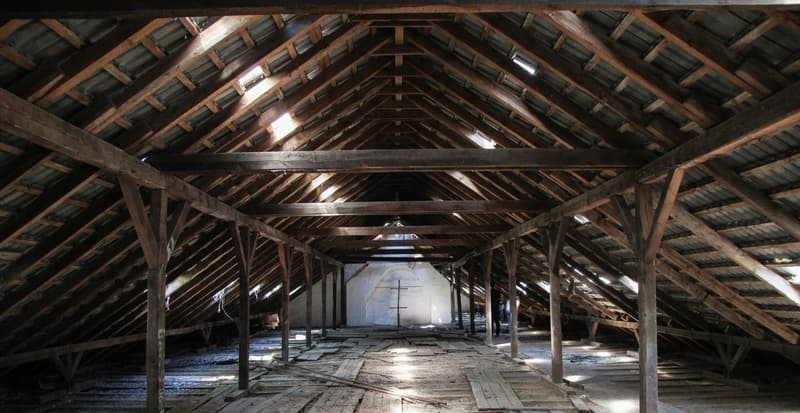
Thereby cause of high moisture content in your home is not necessarily seasonal.
In the cases above, dehumidifier will only work after fixing these other issues. Then humidity levels can be maintained at a suitable level to get rid of pests by using a dehumidifier.
Why Are Bug Still Present in Dry Season?
In a dry season like winter, you would see way less bugs compared to hot and humid season like summer. High humidity is crucial for their development and survival.
But, as I said earlier, it is not necessary that high humidity in your home that is attracting insects is due to a season only. So despite winter you may have large number of bugs in your home.
It may be a humid basement or attic. May by a leaky basin in the kitchen or a water leaking in the laundry room. You can click here to be directed to the section where I discussed this in detail.
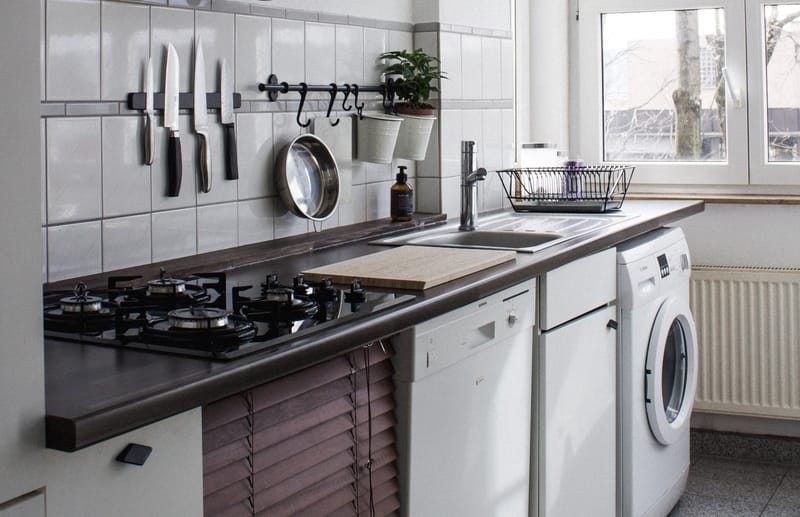
If you have abnormally high number of bugs, despite overall low humid environment, what I would do is to search for its source, before deciding to dehumidify entire area.
Best is to slowly cover all rooms and floors of your home. Look for any water mess-ups, fix these major problems, then move to other ways to accelerate removal of insects.
Recipe for No Bugs Using Dehumidifier
By following method, you can completely get of rid insects’ problem, if done right. Here it goes:
- Trace your home for any cracks in windows, screens, doors etc. For gaps in doors and windows, consider using a weather strip or seal strip, like this one. For cracks, try using Gorilla Water Proof Patch and Seal Tape. This smart DIY will save you a lot of money.
- Look for any insulation damage, leaking taps or pipes, leaky faucets, drain pipes etc. in your home, especially in kitchen and bathroom.
- Keep your kitchen clean. Avoid keeping water stagnant for long times, get rid of leaky faucets, cover food and if you plan to eat it later avoid letting it sit for long times. Handle pet food with precautions, get rid of it before sleeping so that insects do not feed on it.
- Keep your floors clean and sweep them regularly.
- Keep garbage and waste covered and never miss to dispose of it every day. Avoid stacking newspapers and magazines in a single spot of your home. Best is to either get rid of them or keep them enclosed.
- After going through all the steps mentioned above, use a dehumidifier to keep humidity levels in control. Use it in the most humid location and size it accurately. If you are having problem with sizing of dehumidifier, you can take a look at this article in which I have discussed a very simple method to select dehumidifier capacity. (link)
- Firewood stacks, compost bins, and yard waste are good hiding places for bugs that might move indoors. Keep them at a distance from your home. Areas of stagnant water outside your home can promote mosquito breeding. Weeds and plant debris can also harbor insect pests. Protect you home foundations from plants.
- Using insect and pest killers is a very effective way to prevent insects indoors and outdoors. For indoors and perimeter, a very good option would be Ortho Home Defense Insect Killer. You can go one step further and use Cutter Backyard Bug Control Spray outside in your lawn and backyard to get rid of mosquitoes, ants and other bugs.

